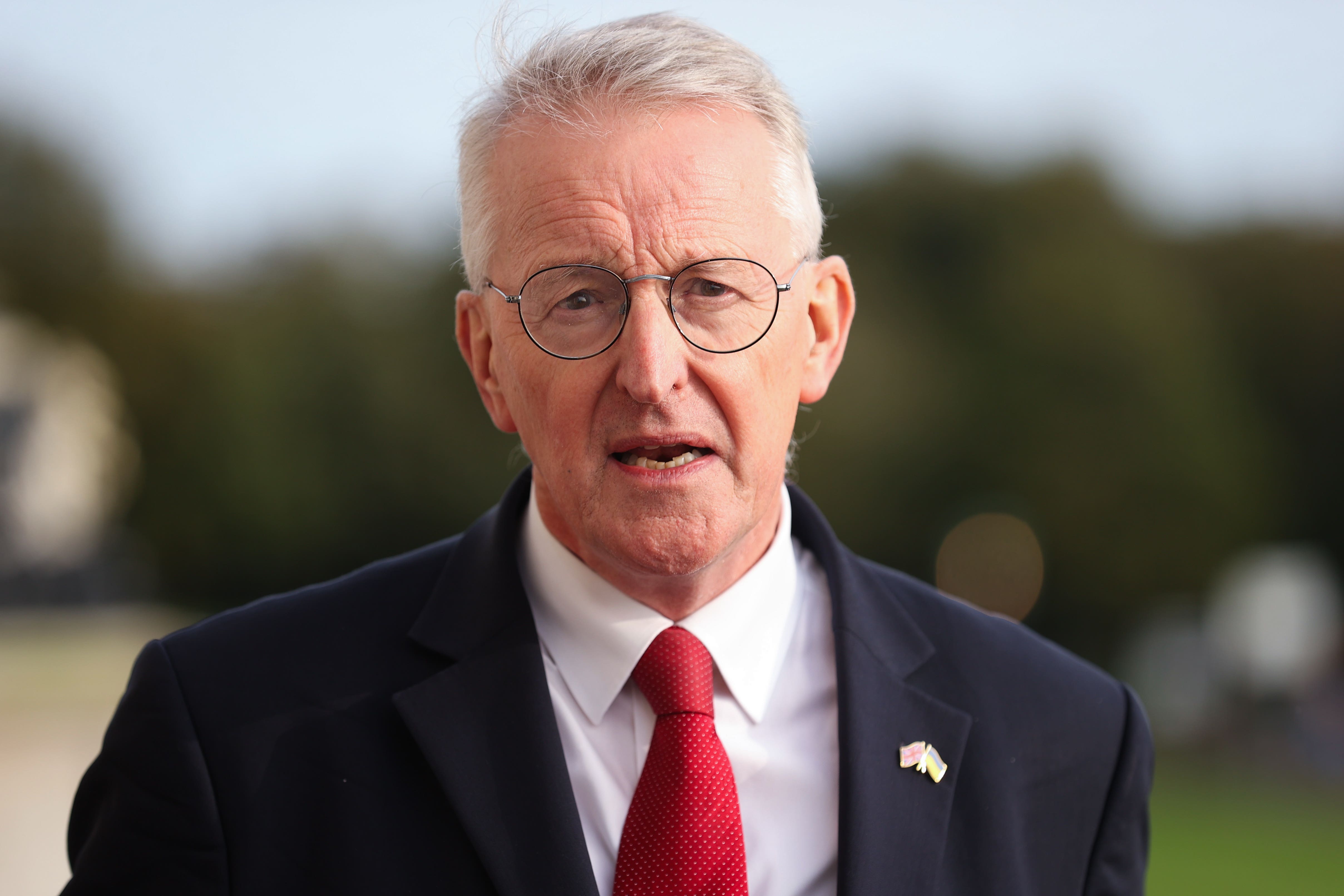Legacy Act ‘must have a replacement’ to help NI overcome ‘collective trauma’
Shadow secretary of state Hilary Benn held meetings around the controversial Government Act during a visit to Northern Ireland.

Your support helps us to tell the story
From reproductive rights to climate change to Big Tech, The Independent is on the ground when the story is developing. Whether it's investigating the financials of Elon Musk's pro-Trump PAC or producing our latest documentary, 'The A Word', which shines a light on the American women fighting for reproductive rights, we know how important it is to parse out the facts from the messaging.
At such a critical moment in US history, we need reporters on the ground. Your donation allows us to keep sending journalists to speak to both sides of the story.
The Independent is trusted by Americans across the entire political spectrum. And unlike many other quality news outlets, we choose not to lock Americans out of our reporting and analysis with paywalls. We believe quality journalism should be available to everyone, paid for by those who can afford it.
Your support makes all the difference.The Government’s controversial Legacy Act “must have a replacement” to help the people of Northern Ireland overcome the “terrible collective trauma” of the Troubles, the shadow secretary of state has said.
Hilary Benn, accompanied by shadow Northern Ireland minister Fleur Anderson, held talks about the Northern Ireland Troubles (Legacy and Reconciliation) Act during their first official visit to the region since being appointed by Labour leader Sir Keir Starmer last month.
The Act is widely opposed by parties across the political divide in Northern Ireland, as well as the Irish government and groups which support victims.
Aspects of the laws include a limited form of immunity from prosecution for Troubles-related offences to those who co-operate with the new Independent Commission for Reconciliation and Information Recovery. It will also halt future civil cases and inquests.
On Monday, Mr Benn and Ms Anderson met with victims and survivors at the Wave Trauma Centre, as well as a separate meeting with Sir Declan Morgan and Peter Sheridan of the commission set up by the Act.
Speaking to media at Stormont, Mr Benn said he made a commitment on his second day in the job that Labour would repeal the Act, but said there has tobe something to replace it.
We have to have a mechanism, a means to enable people to find what they are looking for, so that society can progress
“From the conversations that we have had yesterday, people object to the immunity provisions, they’re concerned about the disappearance of the civil route to try and seek remedy and the disappearance of inquests,” he said.
He said once the commission gets up and running, its credibility “will depend upon how they go about their task”.
“The issue that I’ve been discussing with the people I have met over the last couple of days is, if you were to deal with the most egregious parts, the most objectionable parts of the Legacy Act, would that help? And then people decide whether they wish to approach the commission under the legislation and say: ‘This is the case I am concerned about, will you investigate?'” he said.
“We will have to determine that, but I’m very conscious that it’s not just a question of saying that we will scrap the Act – we have to put something in its place, and it has to be something that is going to work.
“For the families and people we met yesterday morning and to listen to their stories and what happened to their loved ones, the thing they said most forcefully to us is: ‘We feel with the Legacy Act, that the death of our loved one somehow doesn’t count.’
“We cannot be in a situation where people in Northern Ireland feel that, because coming to terms with what had happened is really important.
“It’s very difficult, and different families want different outcomes. Some continue to seek justice, some want to find out exactly what happened to their loved one, and for them that will be enough.
“Each family deal with it in their own way, but we have to have a mechanism, a means to enable people to find what they are looking for, so that society can progress, overcoming what has been a terrible collective trauma.”